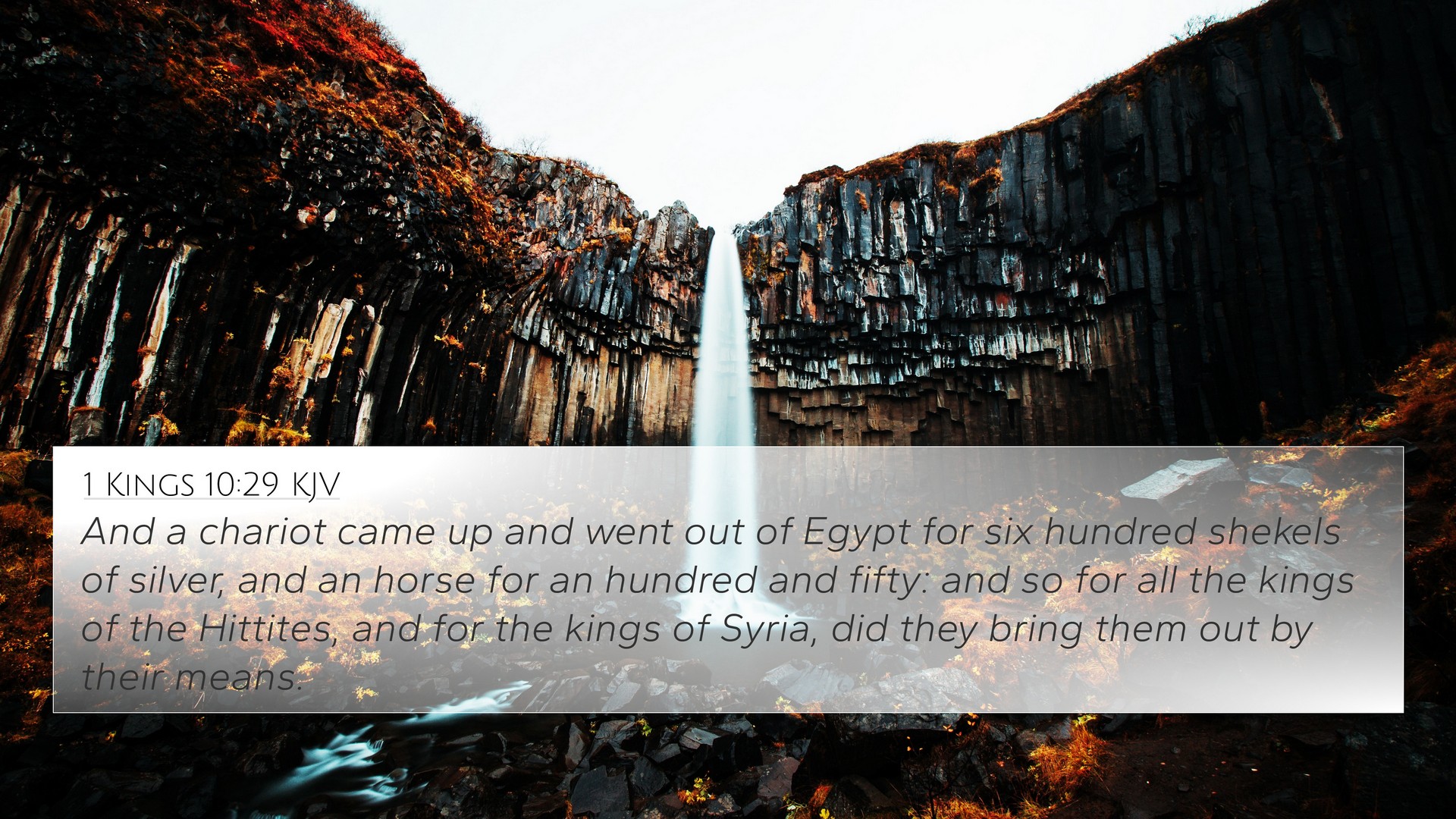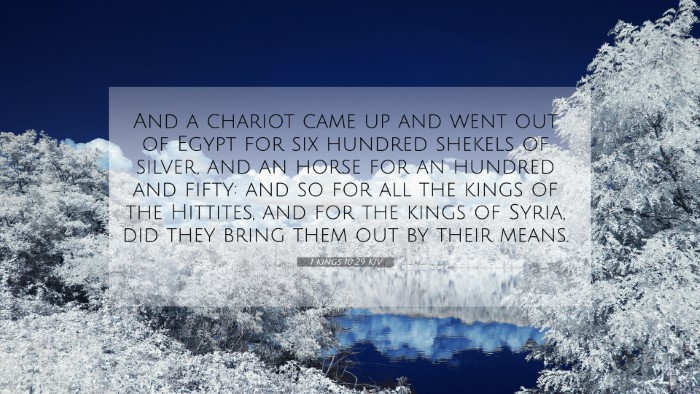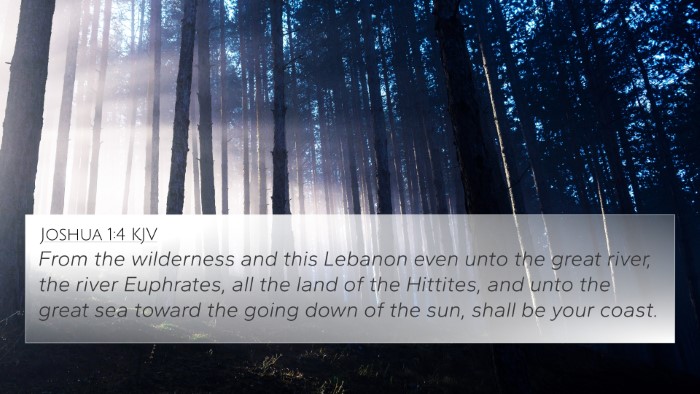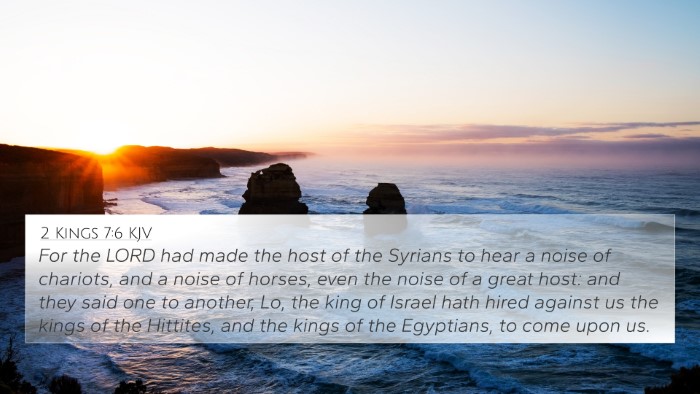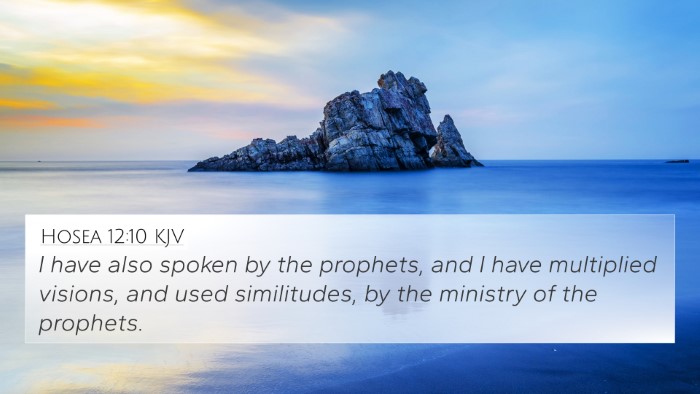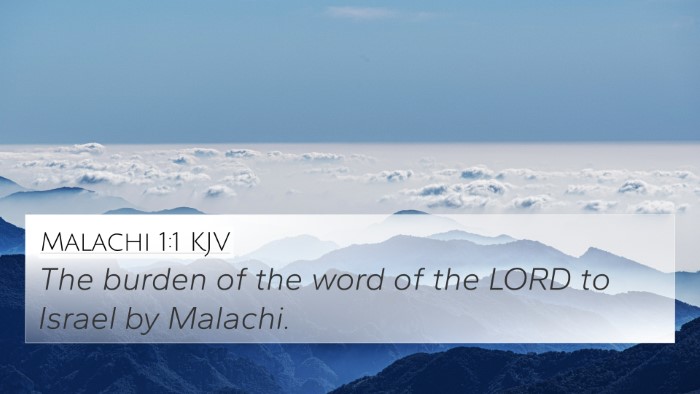Old Testament
Genesis Exodus Leviticus Numbers Deuteronomy Joshua Judges Ruth 1 Samuel 2 Samuel 1 Kings 2 Kings 1 Chronicles 2 Chronicles Ezra Nehemiah Esther Job Psalms Proverbs Ecclesiastes Song of Solomon Isaiah Jeremiah Lamentations Ezekiel Daniel Hosea Joel Amos Obadiah Jonah Micah Nahum Habakkuk Zephaniah Haggai Zechariah MalachiVerse
1 Kings 10:1 1 Kings 10:2 1 Kings 10:3 1 Kings 10:4 1 Kings 10:5 1 Kings 10:6 1 Kings 10:7 1 Kings 10:8 1 Kings 10:9 1 Kings 10:10 1 Kings 10:11 1 Kings 10:12 1 Kings 10:13 1 Kings 10:14 1 Kings 10:15 1 Kings 10:16 1 Kings 10:17 1 Kings 10:18 1 Kings 10:19 1 Kings 10:20 1 Kings 10:21 1 Kings 10:22 1 Kings 10:23 1 Kings 10:24 1 Kings 10:25 1 Kings 10:26 1 Kings 10:27 1 Kings 10:28 1 Kings 10:29